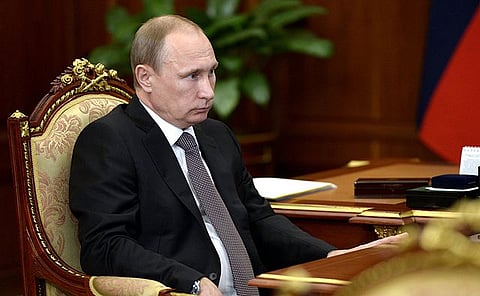

Strategic Deterrence and Sovereignty Defense
Russian President Vladimir Putin declared that any Western troops deployed to Ukraine would become "legitimate targets" for Russian forces, emphasizing Moscow’s unwavering opposition to NATO expansion near its borders. This warning came during the Eastern Economic Forum in Vladivostok, where Putin framed the potential presence of foreign troops as an existential threat to Russian security. He reiterated that Russia’s military actions in Ukraine aim to prevent NATO’s eastward enlargement and ensure strategic stability, arguing that Western guarantees would undermine long-term peace.
Diplomatic Openings Amid Conditions
Despite the stern warning, Putin expressed readiness for negotiations, inviting Ukrainian President Volodymyr Zelensky to Moscow for direct talks. He assured "100% security guarantees" for such a meeting but dismissed alternative venues as "excessive requests". Kremlin spokesperson Dmitry Peskov clarified that the invitation aimed at dialogue, not surrender, highlighting Russia’s preference for a diplomatic resolution. However, Putin noted significant obstacles, including legal and technical complexities, and Ukraine’s reluctance to engage on key issues like neutrality and Donbas’s status.
Western Divisions and Coalition Challenges
The warning targeted a French-led initiative where 26 nations pledged postwar security guarantees for Ukraine, including potential troop deployments. While France and Britain signaled openness to sending forces, Germany and Italy conditioned participation on U.S. involvement and postwar stability. U.S. President Donald Trump ruled out ground troops but pledged air support and sanctions pressure. Putin criticized the coalition’s plans as provocative, asserting that foreign troops would be redundant if a peace agreement addressing both Russian and Ukrainian security concerns were reached.
Geopolitical Context and Future Scenarios
The conflict’s resolution hinges on mutual security guarantees, with Russia demanding Ukrainian neutrality and recognition of its territorial gains. Putin acknowledged "a glimpse of light" in negotiations but warned that military operations would continue if diplomacy fails. The involvement of external actors like China and North Korea, which pledged support to Russia adds complexity, while EU membership for Ukraine remains a secondary issue for Moscow compared to NATO exclusion. The situation underscores a critical juncture: robust Western backing could deter future aggression but risks direct confrontation with Russia.